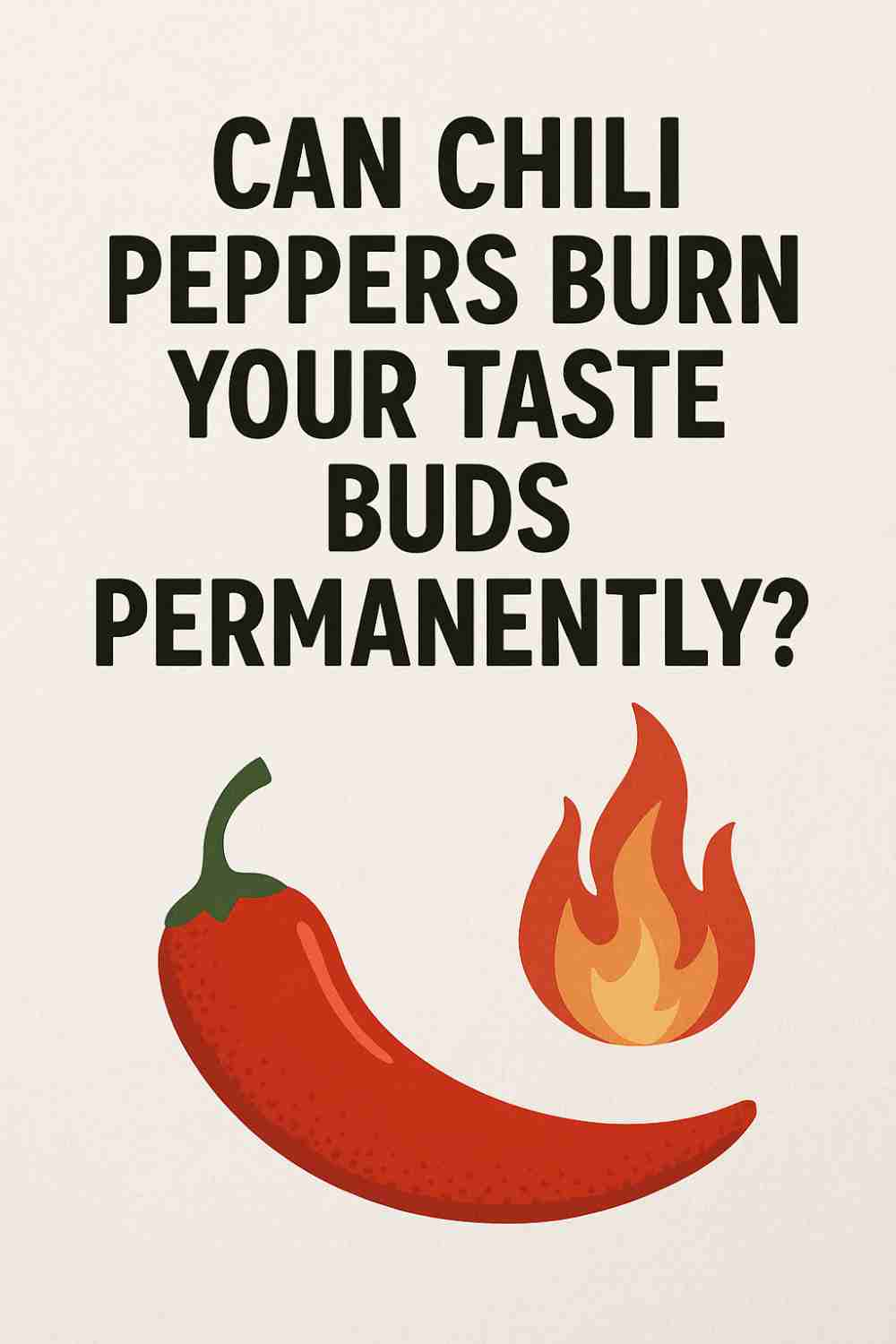 Ever bitten into a chili pepper and felt like your mouth just declared war on you? That searing, electric pain—some call it a thrill, others a culinary betrayal. But here’s the real question: can that fiery sensation actually permanently wreck your taste buds? Or is this just another spicy myth we’ve swallowed whole?
Ever bitten into a chili pepper and felt like your mouth just declared war on you? That searing, electric pain—some call it a thrill, others a culinary betrayal. But here’s the real question: can that fiery sensation actually permanently wreck your taste buds? Or is this just another spicy myth we’ve swallowed whole?
Let’s cut through the heat haze.
The Science Behind the Burn 🔥
First, understand this: chili peppers don’t “burn” you in the literal sense. The culprit is capsaicin, a compound that tricks your brain into thinking you’re being scorched by actual flames. It binds to pain receptors (TRPV1, if you’re into nerdy details), screaming “DANGER!” to your nervous system. But here’s the kicker—your taste buds aren’t being damaged. They’re being trolled.
So, no, a habanero won’t leave your tongue looking like a charcoal briquette. But could repeated capsaicin abuse dull your taste sensitivity over time? That’s where things get juicy.
Temporary Numbness vs. Permanent Damage
Ever noticed how, after eating something insanely spicy, your mouth feels like it’s wrapped in cotton wool? That’s temporary desensitization. Capsaicin overload can fatigue those pain receptors, leaving you briefly less responsive to heat—or even other flavors. But permanent damage? The evidence is thinner than a ghost pepper’s patience.
Studies suggest chronic exposure to extreme heat might reduce taste sensitivity in some individuals, but we’re talking professional chili-eater levels of dedication. For the average person tossing hot sauce on tacos? Unlikely. Your taste buds regenerate every 1-2 weeks anyway. They’re resilient little buggers.
The Myth of “Dead” Taste Buds
Here’s a spicy truth: people love blaming chili peppers for their fading taste sensitivity, but aging, smoking, or even vitamin deficiencies are far likelier culprits. Your grandma’s bland cooking didn’t kill her taste buds—time did.
That said, there’s a psychological twist. If you’re constantly bombarding your palate with extreme heat, milder flavors might start tasting like cardboard by comparison. It’s not that your taste buds are dead; they’re just drowning in capsaicin’s loud, obnoxious shout.
When Spice Goes Wrong 🌶️
Okay, let’s not pretend chili peppers are harmless. In rare cases, physical damage can happen—like when someone attempts a Carolina Reaper on a dare and ends up with esophageal spasms. But taste buds? They bounce back. The real risk is overestimating your tolerance and ending up in a tearful, milk-guzzling spiral of regret.
(Pro tip: If you’re into pushing limits, maybe test your mettle with a Bing homepage quiz instead. Less pain, more gain.)
How to Enjoy Heat Without the Regret
Want to keep your taste buds sharp while still riding the spice wave? Here’s the cheat code:
🍽 Balance is key: Pair spicy foods with cooling agents like yogurt or avocado. Your tongue will thank you.
🚫 Skip the machismo: You don’t need to eat a pepper raw to prove a point. Cook it into dishes for layered heat.
💧 Hydrate smartly: Water spreads capsaicin. Milk or beer? Better choices.
And if you’re still worried about long-term effects, remember: moderation isn’t just for puritans. It’s for people who like tasting their food tomorrow.
The Cultural Love Affair With Pain
Why do we voluntarily eat things that hurt? Because humans are weirdly masochistic about pleasure. Spicy food releases endorphins—nature’s way of rewarding us for surviving self-inflicted torture. It’s the culinary equivalent of a rollercoaster: terrifying, exhilarating, and oddly addictive.
(If you prefer your adrenaline rushes less mouth-based, try the Bing entertainment quiz. Same thrill, zero heartburn.)
Final Verdict: Should You Worry?
Unless you’re mainlining ghost pepper smoothies daily, your taste buds are probably safe. The human body is built to handle heat—just not always with dignity. So go ahead, drizzle that hot sauce. Your future self will still be able to taste the subtle notes of regret.
And if anyone tells you chili peppers “burned away” their ability to taste, smile, nod, and pass them a glass of milk. Some myths deserve to die—just not your taste buds.

